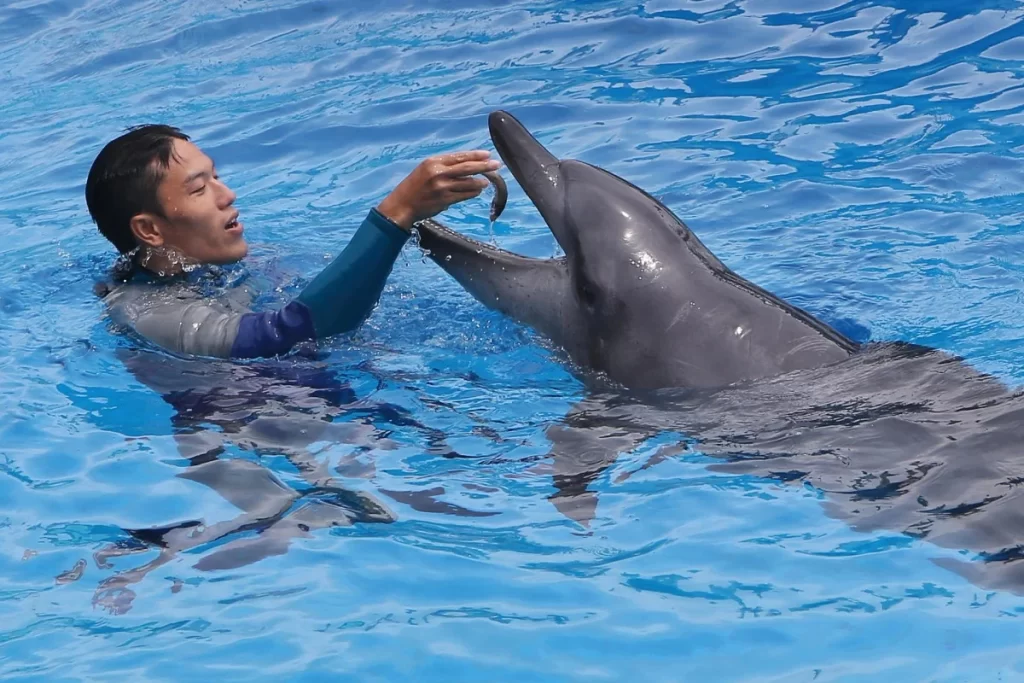May 22, 2025 — In the wake of renewed criticism surrounding multiple dolphin deaths at marine theme parks, the former CEO of Ocean Adventures Inc., a global ocean-themed park operator, has stepped forward to defend his tenure and address public outcry over marine animal welfare.
John Mercer, who led Ocean Adventures from 2016 to 2022, issued a public statement on Wednesday asserting that the company adhered to “stringent international standards” for marine life care during his leadership. His comments come days after animal rights groups reignited scrutiny over the deaths of several dolphins at the company’s flagship parks in California and Florida.
Public Backlash Over Marine Mammal Deaths
The controversy resurfaced following the recent release of an investigative report by OceanLife Watch, a non-profit dedicated to marine animal protection. The report highlighted the deaths of at least five dolphins between 2020 and 2023 at Ocean Adventures parks, citing issues such as inadequate pool conditions, overstimulation from performances, and health mismanagement.
Mercer stated that the deaths were “tragic but not indicative of systemic neglect,” emphasizing that marine veterinary teams were “highly trained” and that each incident was followed by independent reviews. “Animal welfare was a top priority under my administration,” Mercer noted. “We invested in expanded enclosures, advanced water filtration systems, and continuous staff training.”
Growing Pressure from Activist Organizations
Despite Mercer’s defense, organizations like PETA and Dolphin Freedom Coalition have demanded greater accountability. They argue that Ocean Adventures prioritized entertainment profits over marine mammal well-being. “Dolphins are intelligent, sentient beings who suffer in captivity,” said Dr. Laura Bennett, a marine biologist affiliated with the Dolphin Freedom Coalition. “No amount of corporate spin can reverse what’s happened.”
Protesters have also begun organizing demonstrations outside park locations, calling for an end to live animal performances and the transition to sanctuary-based care. Social media platforms have amplified these efforts, with hashtags such as #FreeTheDolphins and #EndCaptivityNow gaining momentum.
Regulatory and Industry Response
The U.S. Marine Mammal Commission has acknowledged the issue and confirmed it is reviewing compliance records at Ocean Adventures facilities. While no formal violations have yet been announced, the commission stressed that maintaining ethical care standards is “non-negotiable” for all licensed marine parks.
In parallel, some lawmakers are pushing for legislation that would phase out captive dolphin programs entirely. Senator Rachel Hines of California introduced a bill this week aimed at banning the breeding and performance use of dolphins in entertainment settings statewide.
Industry’s Struggle Between Tradition and Reform
The dolphin deaths and ensuing backlash reflect a broader shift in public opinion about marine parks and the ethics of animal captivity. Once considered family-friendly attractions, many ocean-themed parks are now facing existential questions as ecological awareness and animal rights advocacy grow.
In response, a number of marine parks globally are beginning to adopt virtual and augmented reality technologies to simulate ocean experiences without live animal shows. Ocean Adventures has yet to publicly comment on whether such changes are being considered.
Conclusion
As scrutiny intensifies, the legacy of John Mercer’s tenure at Ocean Adventures remains under debate. While he maintains that his administration acted responsibly, critics argue that the deaths are symptomatic of a larger, outdated system. The future of marine entertainment may well depend on how the industry balances conservation, education, and ethics in the post-Mercer era.



